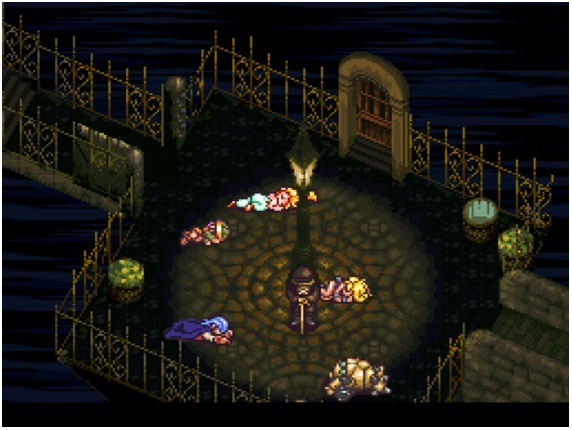

So to the technical aspects of Chrono Trigger's port to DS. After each completion you can opt to start again with a New Game +, keeping hold of all of your hard-won stats. A useful 'Endings' tab in the enhanced menu screen lets you collect and watch all of the game's different endings. Under the watchful eye of Final Fantasy composer Nobuo Uematsu (who penned a few of the game's melodies himself), Mitsuda worked so hard on the soundtrack that he made himself physically sick, a dedication of effort that's comes through in the texture and nuance of the work. Yasunori Mitsuda, a young composer at Square hired three years previous to Chrono Trigger's development, was so desperate for a project to call his own that he gave Sakaguchi an ultimatum: give me a game to score or fire me. The game's narrative strength, and the impact of its more poetic moments, is heightened by one of gaming's best-loved soundtracks. The active battle system ensures that combat is fast-paced and interesting, and the 'techs', special moves that work in a range of different ways for different characters, provide just enough depth and strategy to make the system interesting over the long haul. There's no protracted transition screen or stentorian fanfare. Whenever Crono encounters an enemy on-screen his party springs into formation and the battle is underway.

The removal of the JRPG's traditional fussiness is best exemplified by the battle system. It's the game poking fun at your habit of clicking on everything an excellent and surprising joke that not only ridicules the JRPG conventions its makers helped establish, but foreshadows the game's wider themes in a lighthearted way. During the trial, the prosecution shows footage of your actions earlier in the game, running from stall to stall at a bustling fair, 'stealing' goods from trestle tables.

In one memorable scene early on, Crono stands trial for crimes you're sure you never committed. But that's not to say the game's too worthy.


 0 kommentar(er)
0 kommentar(er)
